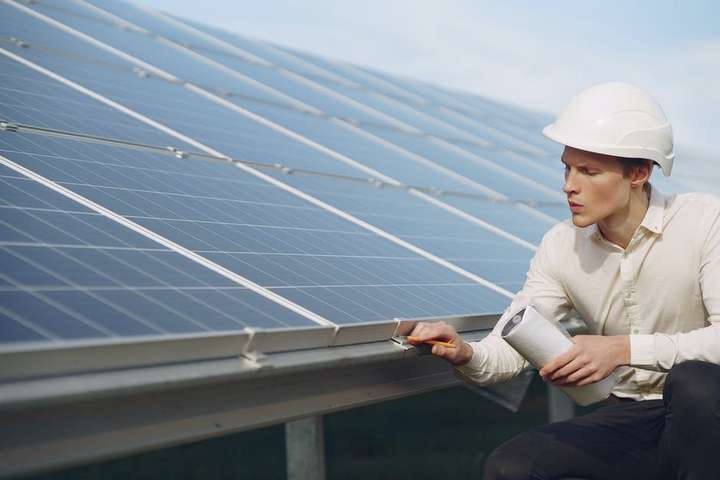Are you considering going solar and harnessing the power of the sun to meet your energy needs? Investing in solar panels is a significant decision that can benefit both your finances and the environment. However, before you make the leap, there are crucial factors to consider to ensure you make the right choice for your home and lifestyle. In this comprehensive guide, we’ll explore the five essential things you should think about when purchasing solar panels. So, let’s get started on your journey to a greener and more sustainable energy future.
1. Energy Needs and Consumption
The first step in the solar panel purchasing process is to assess your household’s energy needs and consumption patterns. Understanding how much electricity you use on average helps determine the right solar panel system size for your home. You can review your past energy bills or consult with an energy specialist to get accurate data.
Keep in mind that your energy needs may change over time, especially if you plan to add new appliances or expand your living space. Opting for a slightly larger solar system than your current needs can provide room for future growth and ensure you generate enough electricity to cover your usage.
2. Roof Suitability and Orientation
Solar panels are typically installed on rooftops, so it’s crucial to evaluate your roof’s suitability and orientation for solar installation. The ideal roof should have ample space with minimal shading from nearby trees, buildings, or obstructions. South-facing roofs receive the most sunlight throughout the day, making them the optimal choice for solar panel placement. However, east and west-facing roofs can also work well, depending on your location and energy needs.
A roof inspection by a professional solar installer will help determine whether your roof is structurally sound and can support the weight of solar panels. Additionally, they will assess its angle and orientation to maximize solar energy production.
3. Quality and Efficiency of Solar Panels
Solar panel quality and efficiency play a significant role in their long-term performance and return on investment. Look for reputable solar panel brands with a proven track record of reliability and durability. High-quality panels are likely to last longer and require less maintenance, providing you with peace of mind for years to come.

The efficiency of solar panels refers to how well they convert sunlight into electricity. Higher efficiency panels produce more power in limited space, which can be advantageous if you have limited roof area. However, keep in mind that higher efficiency panels may come with a higher price tag, so it’s essential to strike a balance between efficiency and budget.
4. Financial Incentives and Financing Options
Going solar has become more affordable than ever, thanks to various financial incentives and financing options. Research the available incentives in your region, such as tax credits, rebates, and feed-in tariffs, as they can significantly reduce the upfront cost of installing solar panels.
Additionally, explore different financing options like solar loans or leases. Solar loans allow you to own the solar system and benefit from energy savings over time. On the other hand, solar leases or power purchase agreements (PPAs) involve renting the solar system and paying for the electricity it produces, usually at a lower rate than traditional utility prices.
5. Choose a Trusted Solar Installer
Selecting a reputable and experienced solar installer is vital to ensure a smooth and successful solar panel installation. Take the time to research and compare different installers in your area. Look for customer reviews, certifications, and licenses to gauge their expertise and reliability.
A professional solar installer will conduct a thorough site assessment, guide you through the purchasing process, and handle the necessary permits and paperwork. They will also provide post-installation support and maintenance to keep your solar system operating efficiently.
Solar Panel Types and Efficiency:
here are various types of solar power panels, each with different levels of efficiency and performance. Research monocrystalline, polycrystalline, and thin-film panels to find the most suitable option for your specific requirements.
Manufacturer’s Reputation and Warranty:
Choose solar panels from reputable manufacturers with a proven track record. A robust warranty ensures that your investment is protected, providing peace of mind for years to come.
Financial Incentives and Rebates:
Explore available financial incentives, rebates, and tax credits offered by governments and local authorities for solar panel installations. These incentives can significantly reduce upfront costs and enhance the return on investment.
Conclusion
Purchasing solar panels is a significant investment that can bring long-term benefits to your home and the environment. Before making a decision, carefully consider your energy needs, roof suitability, and the quality of solar panels you choose. Explore available financial incentives and financing options to make the transition to solar more affordable.
Above all, partner with a trusted solar installer who can guide you through the process and ensure a seamless installation. By thinking about these five essential factors, you’ll be well-prepared to embrace solar energy and enjoy the advantages of clean, renewable power for years to come.
Visit website to learn more about solar panels and take the first step towards a sustainable energy future.





